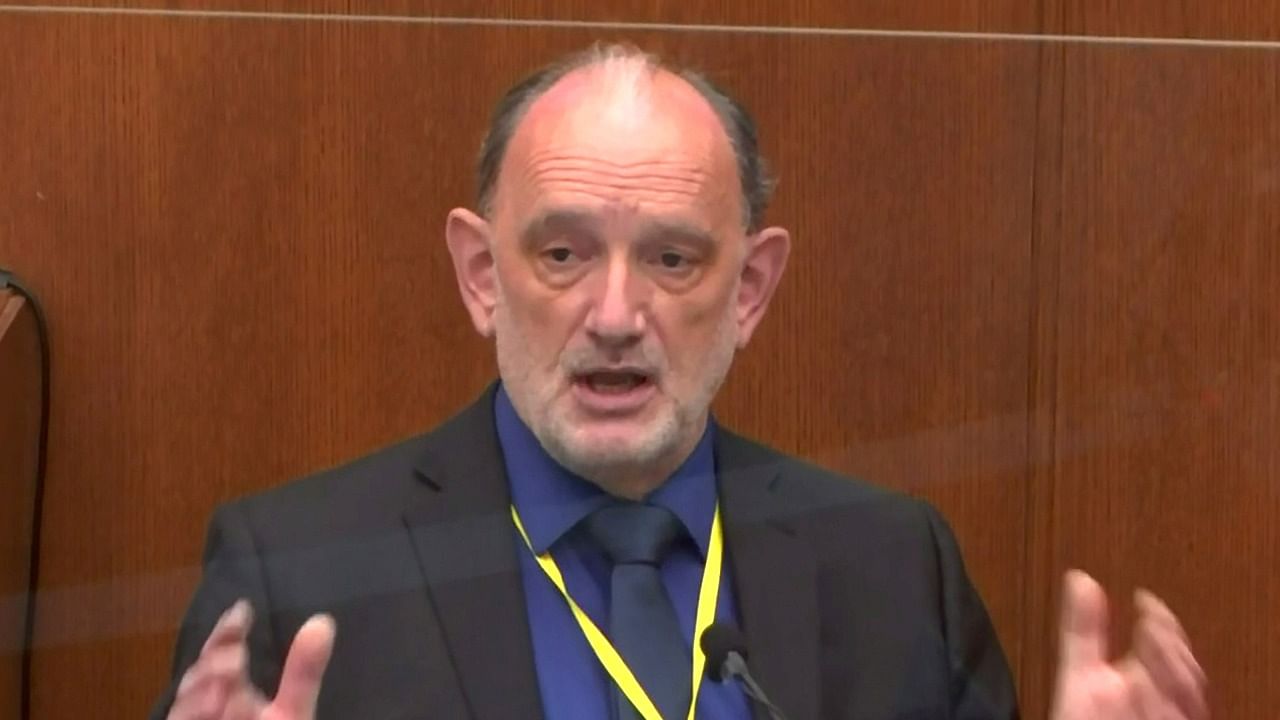
George Floyd died from cardiac arrest brought on by heart disease, illegal drug use and other factors, a retired forensic pathologist testified on Wednesday at the murder trial of former Minneapolis police officer Derek Chauvin.
The testimony of Dr David Fowler, a witness called by Chauvin's defense team, contradicted that of several medical experts put on the witness stand by the prosecution.
Those experts said Floyd died of hypoxia, or lack of oxygen, while being held facedown and handcuffed on the ground with Chauvin's knee on his neck for more than nine minutes.
A bystander video of Floyd's May 25, 2020 arrest went viral and sparked protests against racial injustice and police brutality in the United States and around the world.
Fowler, the former chief medical examiner of the eastern state of Maryland, said he did not believe Floyd died due to hypoxia and he would classify his death as "undetermined."
"I would fall back to undetermined in this particular case," he said. "One of the uses of this particular classification is when you've got so many conflicting potential mechanisms, when the manner is not clear."
The South African-born Fowler said Floyd had an enlarged heart and a "significant narrowing of all of his coronary arteries."
"Mr Floyd died of a cardiac arrythmia due to hypertensive, atherosclerotic vascular disease during the restraint," he said.
He said fentanyl and methamphetamine ingested by Floyd were contributing causes along with "the potential of a carbon monoxide role."
Fowler said Floyd was held down on the ground by Chauvin and other officers next to the exhaust pipe of a running police car.
Fowler said he did not believe Floyd died of carbon monoxide poisoning but it was potential factor in his death.
He acknowledged under cross-examination, however, that no tests were ever done on the CO2 levels in Floyd's body.
Earlier Wednesday, the judge presiding over the trial denied a defense motion to acquit Chauvin.
Defense attorney Eric Nelson said prosecutors had failed to prove their case against the 45-year-old Chauvin beyond a reasonable doubt and he should be acquitted.
The motion is a standard request in criminal trials at the end of the presentation of the prosecution case and it was rejected by Hennepin County Judge Peter Cahill.
"The motion for judgment of acquittal is denied," Cahill said.
The judge also said he would allow a potential defense witness to invoke his Fifth Amendment right not to testify.
Morries Hall was with Floyd on the day of his arrest and his attorney, Adrienne Cousins, told the judge that Hall could "not answer any questions without incriminating himself."
"I'm fearful of criminal charges going forward," Hall told the court.
Nelson has suggested that Hall gave illegal drugs to Floyd, who was being arrested for allegedly passing a counterfeit $20 bill.
Nelson asked the judge on Monday to sequester the jury after protests erupted in Minneapolis following the police killing of a 20-year-old Black man.
The judge denied the request and said the jury would be sequestered after closing arguments, which are expected on Monday.
A conviction on any of the counts against Chauvin will require the nine-woman, five-man jury to return a unanimous verdict.
Chauvin faces up to 40 years in prison if convicted of the most serious charge -- second-degree murder.
A 19-year veteran of the Minneapolis Police Department, Chauvin was fired from the force after Floyd's death.
Three other former police officers involved in Floyd's arrest are to be tried separately later this year.